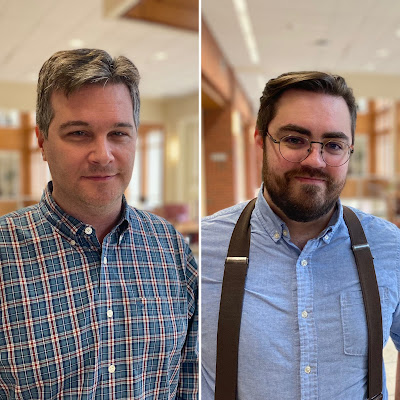Paul McEuen's 'Spiral' Had Oklahoma Roots

Cornell physicist Paul McEuen's first techno-thriller novel “Spiral” had Oklahoma roots.
BY DAVID ZIZZO dzizzo@opubco.com Oklahoman
Published: March 22, 2011
Paul McEuen is curious about a lot of stuff. Tiny drums and the end of the world, for instance.
"Spiral" book cover Provided by Random House Publishing - Provided by Random House Publish
I thought, ‘I can write something about nano stuff that would be a little bit closer to the truth and still be exciting.'” Paul McEuen
As a physics professor and nanoscience researcher at Cornell University in Ithaca, N.Y., McEuen, 47, has stretched atom-thick graphene paper to make, and even play, a microscopic drum, a process that might someday change microelectronics.
“We call that science, interestingly enough,” he said.
And the world-ending thing? That's more of a creative flight of fantasy, one McEuen has taken at least twice. The first time was when he was 12, growing up in south Oklahoma City.
“He wrote a kind of dark, blow-up-the-world kind of poem,” his mother, Mary Lu McEuen, of Oklahoma City, recalled.
Joe McEuen, his father, remembers Paul as a “semi-nerd,” a normal kid with friends and a social life but who also was whip-smart and loved to read, especially “high-end sci-fi.”
“We never tried to push him one way or another,” Joe McEuen said. “Just encouraged him to go where he felt led.”
Paul McEuen remembers his poem was “narrated by the last person on Earth, in the process of dying,” he said. “Shows you where my head was at.”
Channeling passion
Now 35 years later, McEuen has sort of returned to that theme in his latest dark imaginings. The intellectual exercise indulges his creative side, the part of him that likes to wander off alone, to get away from his other passion, hard science. The part that loves to write.
The result was “Spiral,” a novel, if not about the end of the world, about what might present a threat of that possibility. In it, according to a review in The New York Times, an Asian evildoer snatches a Nobel winner to enlist the laureate's “microcrawler” spiderlike nanobots in a terrorist attack involving a deadly biological pathogen. Standing between the world and disaster by fungus is, spoiler alert, a Cornell physics professor.
The idea had been crawling around in McEuen's head since he read “Prey,” a novel about nanobots gone wild written by the late Michael Crichton. A longtime fan of Crichton, McEuen thought the techno-thriller heavyweight author stretched the science “a little too far,” overreaching into the realm of fiction.
“‘Prey' sort of missed the mark a little bit,” he said.
That started the microwheels turning. The job of a thriller writer is to find “something really dangerous” and then wind a feasible tale with it, McEuen said. Nanobots could be good vectors, but a biological agent, now that was a believable scourge, he decided.
“I thought, ‘I can write something about nano stuff that would be a little bit closer to the truth and still be exciting,'” McEuen said.
According to the Times, he succeeded. “It's actually better than a lot of what Mr. Crichton wrote once his prime was over,” the reviewer concluded.
The book has been optioned for a movie, but it's a long way from the screen. Meanwhile, McEuen will continue with his science. And his writing.
“I actually like doing both,” he said. “They sort of use different parts of my brain, and they feed on each other.”

Read more: http://newsok.com/paul-mceuens-spiral-had-oklahoma-roots/article/3549913#ixzz1IetDN1Ti


